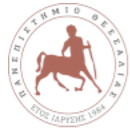Detailed introduction of University of Thessaly:
Introduction and Overview
The University of Thessaly is a public university in Thessaly, Greece. It occupies an important position in the Greek higher education system. It features multidisciplinary comprehensive education and research, and is committed to providing students with a wide range of academic choices and high-quality educational resources, and cultivating various professional talents that meet the needs of society.
History and Establishment
The school was founded in 1984. During the development process, in 2013, the Lamia main campus of the Central University of Greece and its Department of Computer Science and Biomedical Informatics merged with the University of Thessaly. In 2019, the Lamia main campus of the Central Greek Institute of Technical Education and its departments of nursing, physical therapy, computer science, and electronic engineering were also incorporated into the University of Thessaly.
School Strength
Faculty: In 2014, the school had 710 faculty members, including professors, associate professors, assistant professors, and lecturers, providing solid talent support for teaching and scientific research.
Academic research: In-depth research has been carried out in many fields, such as agricultural science, engineering, medicine, humanities and social sciences, etc. The research results have a certain influence in Greece and internationally. Through cooperation with enterprises and research institutions, we actively promote the transformation and application of scientific research results.
International cooperation: Actively participate in international exchange and cooperation projects. It is a member of the European University Association (EUA). It has established cooperative relations with universities around the world, and carried out student exchanges, teacher visits, joint research and other activities, providing students with a broad international perspective and exchange opportunities.
Nature of the institution
Public university.
Educational philosophy
Focus on cultivating students' comprehensive quality and innovation ability, emphasize the combination of theory and practice, encourage students to actively participate in scientific research and social practice activities, so that students can master professional knowledge while having the ability to solve practical problems and innovative spirit, and are committed to cultivating talents with a high sense of responsibility and professional accomplishment for the society.
Key laboratories and disciplines
Key laboratories: The school has a number of advanced research laboratories, such as laboratories in the field of agricultural sciences equipped with modern experimental equipment, which provide good conditions for agricultural research and teaching; the laboratories of the School of Engineering carry out cutting-edge research in the fields of electrical and computer engineering, mechanical engineering, etc.
Key disciplines: 507th in the world in clinical medicine, 488th in the world in plant and animal sciences, and 934th in the world in engineering. In addition, disciplines such as agricultural science, veterinary medicine, economics, and computer science also have certain advantages and characteristics.
Faculty
The school has 8 colleges, namely the College of Agricultural Sciences, the College of Economics and Management Sciences, the College of Engineering, the College of Technology, the College of Humanities and Social Sciences, the College of Physical Education Sciences, the College of Sports and Nutrition, the College of Health Sciences, and the College of Science. Each college is further divided into multiple departments, providing a wealth of undergraduate and graduate degree programs.
Rankings
2022-2023 US NEWS World University Rankings: 964th, 375th among the best global universities in Europe, and 7th among the best global universities in Greece.
2021 Academic Ranking of World Universities: 801-900th.
Fees
Tuition fees at Greek public universities are relatively low. Undergraduate students generally need to pay about 1,000-3,000 euros per year for tuition and registration fees, and master's tuition fees are around 2,000-5,000 euros per year. The specific fees may vary depending on the major.
Campus Environment
Geographic location: The main campus is located in Volos, in central Greece. In addition, there are campuses in cities such as Karditsa, Larissa, Trikala and Lamia, which are distributed in different urban areas to facilitate the enrollment of local and surrounding students.
Facilities and atmosphere: The architectural styles of each campus are diverse, the environment is beautiful, and it has modern teaching buildings, libraries, laboratories, sports facilities, etc. The campus has a strong academic atmosphere, and also pays attention to the cultural and sports life of students. Various academic lectures, cultural activities and sports competitions are often held.
-
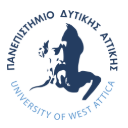
University of West Attica
-

Technical University of Crete
-

International Hellenic University
-
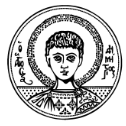
Aristotle University of Thessaloniki
-
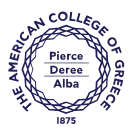
The American College of Greece
-
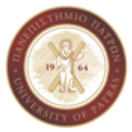
University of Patras
-
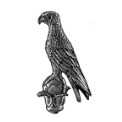
University of Ioannina
-

Democritus University of Thrace
-

Hellenic Open University
-
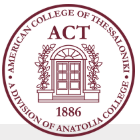
American College of Thessaloniki
-

Mesoamerican University
-

Istmo University
-

Mariano Galvez University of Guatemala
-

Regional University of Guatemala
-

Galileo University
-

Francisco Marroquín University
-

Rafael Landívar University
-

University of the Valley of Guatemala
-

University of San Carlos of Guatemala
-

Technological Institute of Tlaxcala Plateau
-

Golfo University
-

Technological University of South Sonora
-

Technological University of Huejotzingo
-

Tizimín Institute of Technology
-

Chilpancingo Institute of Technology

